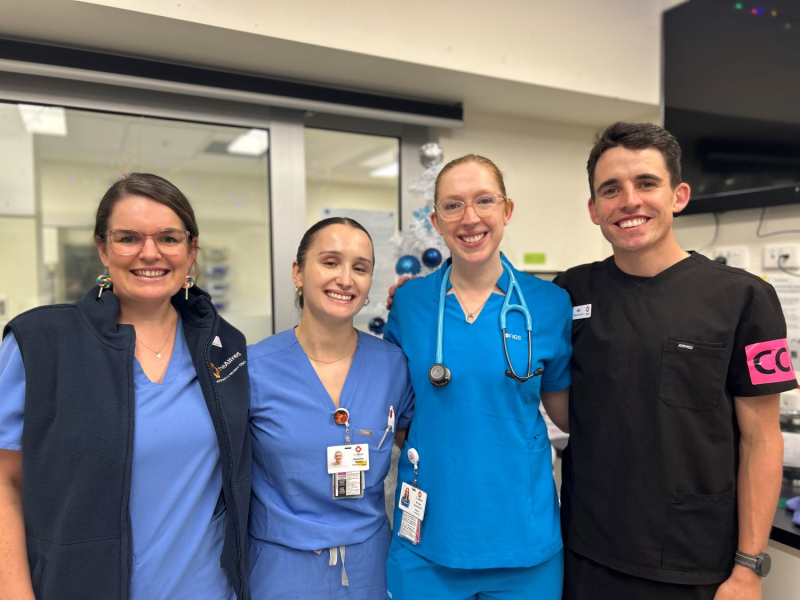“It’s everyone’s responsibility”: Calls to stay safe on roads this summer

As the holiday season approaches, doctors at The Alfred’s Emergency and Trauma Centre are issuing a crucial reminder to the public: road safety is everyone’s responsibility.
Road-related incidents made up around one third of all trauma admissions at The Alfred over the last three summers. This includes accidents involving cars, motorcycles, drivers, passengers, pedestrians, cyclists and e-scooters.
Eloise, 38, was on a suburban morning walk when she was struck by a car.
“I had done this walk daily for years and knew the street well. I was just one street away from my home. I did not have headphones on, was not looking at my phone, and looked left and right before crossing. I did everything right,” she said.
“Despite this, I was struck by a driver who broke a simple road rule and my life was shattered. It has changed my life forever, as well as the lives of my husband, our four-year-old, and my family and friends.”
Eloise was taken to The Alfred with a severe traumatic brain injury. Neurosurgeon Ron Jithoo operated on Eloise as part of a trauma team, including anesthetists and critical care doctors.
After two emergency surgeries requiring the removal of both sides of her skull, Eloise spent a period of time in a coma and then completed a stay at the Acquired Brain Injury Unit at Caulfield Hospital overcoming partial paralysis, before undergoing a final surgery to put her skull back.
Mr Jithoo said Eloise was fortunate to survive, thanks in large part to Victoria’s trauma system.
“Traumatic brain injury is common in road trauma,” Mr Jithoo said.
“Unfortunately, we have a lot of experience with this injury at The Alfred, and see an increase every festive season due to alcohol consumption and recreational activities.”
Deputy Director of Emergency Services at Alfred Health Rohan Laging has seen the summer uptick in road trauma admissions firsthand.
“Often these sorts of accidents occur because we’re so focused on getting to the next event, or we’re distracted by the GPS, or we’re in too much of a hurry to put on a helmet before getting on a bike or scooter,” Dr Laging said.
Dr Laging said he often sees serious road trauma injuries to the head, chest and abdomen – most of which require treatment by a team of emergency workers and trips to the operating room. He said everyone has the ability to ensure our collective safety. Not only that, but the steps to take are simple.
“It’s not rocket science. If you’re getting on a scooter, put on a helmet. If you’ve had a few drinks, don’t drive. If you’re going on a long car trip, schedule breaks.
“If you’re in a hurry, take a moment and make sure you’re in the right frame of mind to be driving a one-ton vehicle made of steel and glass,” Dr Laging said.
"It might sound basic, but these actions save lives – not only that, but they ensure you get to enjoy your summer and not spend it with me in the emergency department.”
Eloise is now at home continuing rehabilitation as an outpatient and looks forward to spending time with family this festive season.
She said her experience highlights the fact that road safety depends on everyone doing the right thing by each other, as well as considering the consequences of rushing or taking shortcuts on the road.
"One person being safe on our roads and footpaths can only do so much – we all need to play our part,” Eloise said.
“Following road rules, even simple ones, is important and they are there for a reason. They are easy to follow and can be catastrophic when they are not, so why take the unnecessary risk?”
_500_333.jpg)

